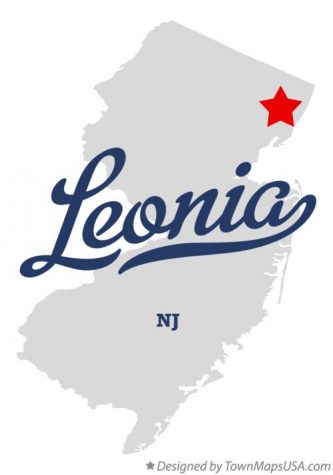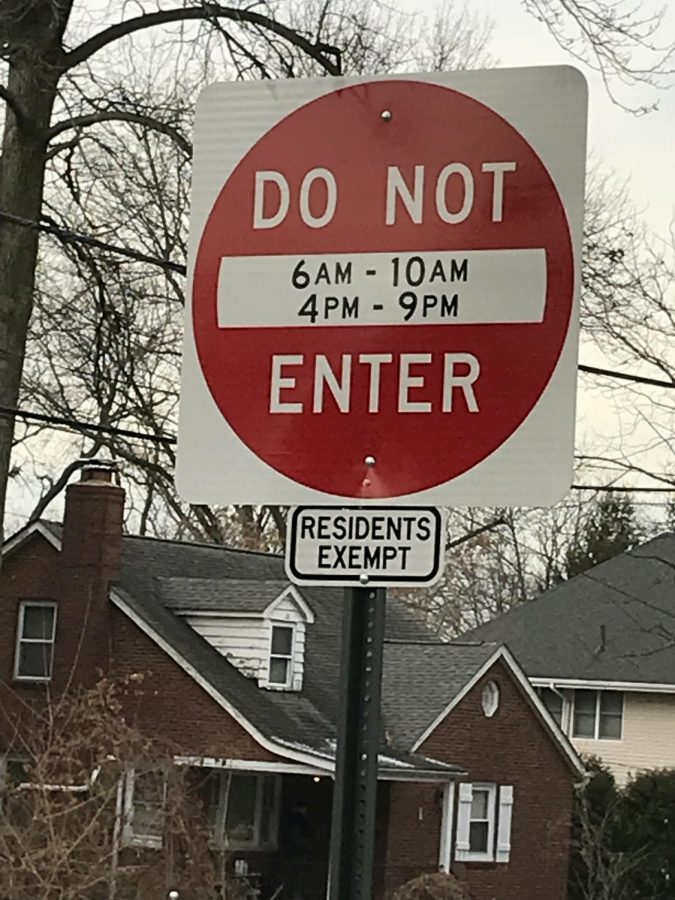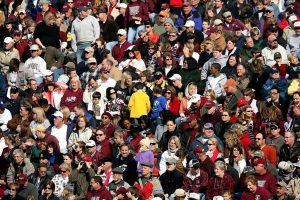Leonia’s Road Closure
February 2, 2018
Leonia has always been a driver’s detour to steer away from the New Jersey side of the traffic-congested George Washington Bridge. But the town has now instituted a new law restricting non-residents of Leonia or commuters from driving on roughly 60 of its roads during morning and afternoon rush hours.
 According to Chief of Leonia Police, Tom Rowe, in a video posted on northjersey.com, “Approximately 60 roads in Leonia are now being closed nine hours a day. Four hours in the morning from 6 to 10 a.m. and 4 to 9 p.m., seven days a week.”
According to Chief of Leonia Police, Tom Rowe, in a video posted on northjersey.com, “Approximately 60 roads in Leonia are now being closed nine hours a day. Four hours in the morning from 6 to 10 a.m. and 4 to 9 p.m., seven days a week.”
The reasoning behind the initiation of this new law? Traffic-congested roadways filled with commuters trying to avoid the traffic created by the nearby GW Bridge. GPS devices and commonly used applications—Google Maps and Waze—have been redirecting motorists through Leonia as a diversion to avoid the traffic. Breaking this law, which was put into effect in the third week of January, could result in a fine of $200. “The reason we are doing this is just the inordinate levels of traffic that we face on a daily basis,” Rowe said in a video on northjersey.com. “Leonia is a very small town, 9,200 people with a small police department of eighteen officers inclusive of myself. However, the proximity to New York City and the fact that we have three exits off the New Jersey Turnpike that feed traffic into our borough creates traffic havoc. For us, we had to come up with a very low-tech solution to a high-tech problem, the high-tech problem is the advent of the GPS navigation apps, which started about 10 years ago.”
Fortunately, the popular navigation systems that have contributed to the town’s traffic are now working with Leonia’s new law to solve this issue. Rowe also said in a video on northjersey.com, “The navigation app companies—Waze, TomTom, Apple Maps—have been very helpful in this endeavor. If you go on to Apple Maps this morning, you will see red dots all over town, meaning the roads are closed. The major roads in town are open—Fort Lee Road, Grand Avenue, and Broad Avenue.”
Rowe believes that this new law will only benefit the town and its people. “We are asking people to stay on the highway, that’s where vehicles belong,” Rowe said in the video. “Going up side streets that are eighteen feet wide when kids are going to school is a recipe for disaster.”
“I think this new law has a great impact on the residents of Leonia,” said Kyra Melizanis, a resident of Leonia. “It creates safer and less trafficked roadways.”
According to northjersey.com, to show one is a resident, one would display on one’s rearview mirror a yellow resident tag. Anyone not displaying the required yellow tag would be subject to the fine.
For this writer, as she was on her way to interview Leonia Chief Police, Thomas Rowe, she passed by the station and found herself unable to make a U-turn. Ironically, this restriction was due to the very law that she had been on her way to investigate. Come to think of it, she couldn’t imagine daily commuters facing this everyday struggle, let alone someone like her trying to make a simple U-turn.
“The traffic was a big issue in Leonia, so it was necessary. But it’s also kind of dumb because now Leonia residents are being stopped by police and it took a long time for the yellow cards to come,” said Melizanis. “This new law is also causing issues for students from Edgewater that attend our high school. They are being stopped, as well, and the school is not helpful in any way. The school tells students to call the borough.”
This leaves the question, is this new law really legal or just? According to northjersey.com, “Law experts have differed on whether the law is legal. But Leonia officials say they are well within their rights to protect residents on local roads from the onslaught of traffic.”

















































































































































